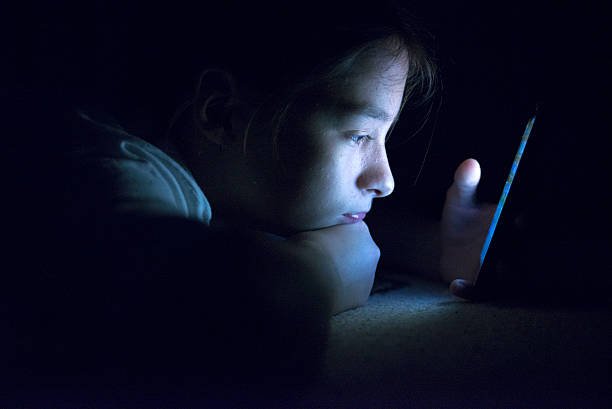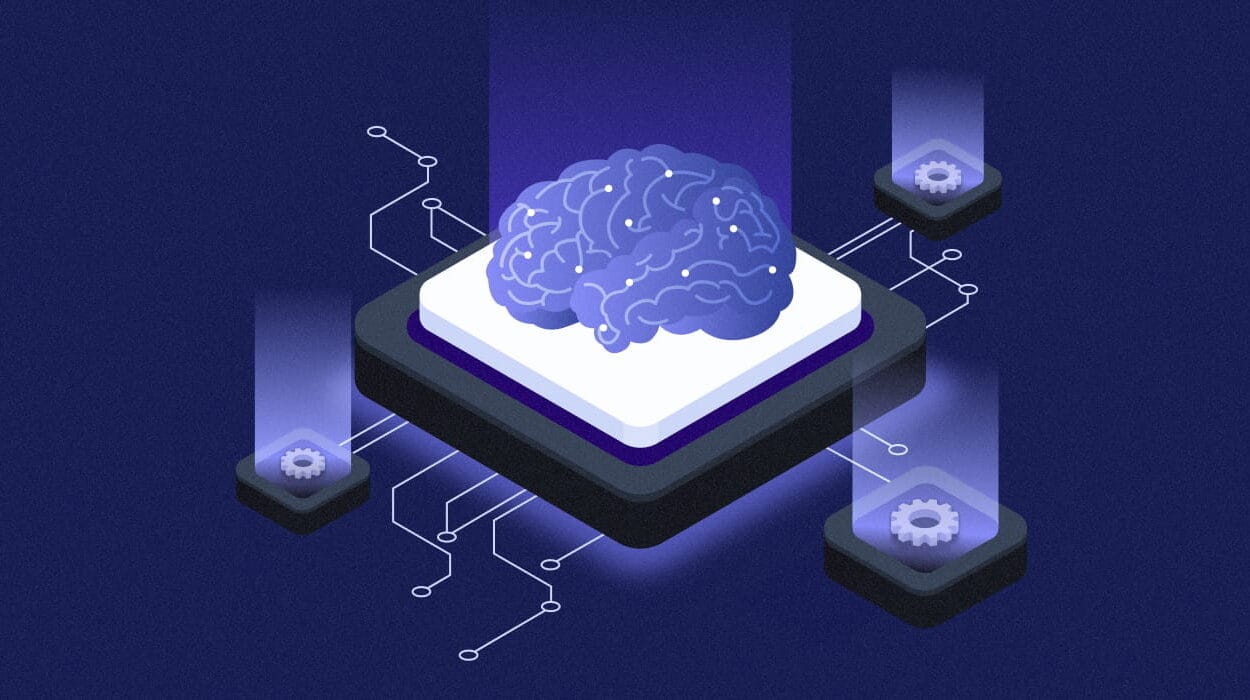It is the first hour of dawn. You slip into your child’s bedroom, treading softly over scattered toys and clothes, and pause at the edge of the bed. The morning light falls gently over their sleeping face, lashes fluttering against cheeks still rounded with childhood. They look so serene, so defenseless, tangled in a superhero comforter.
Later, when they wake, they’ll blink away dreams and reach instinctively—not for a stuffed animal, but for the bright screen glowing on the nightstand. In that moment, the world floods in. A thousand voices, a million images, and countless invisible hands will reach for them. For many parents, that first flicker of the screen carries an ache of worry.
Your child is growing up in an age unlike any other, a digital epoch that no previous generation has navigated in quite this way. It is a world of unimaginable possibility and also unprecedented peril.
Are your children safe online? It’s a question that startles the heart awake at 2 a.m. It’s a question that no longer has a simple answer.
The Digital Tether
When the history of our times is written, historians may look back and marvel at how quickly screens transformed childhood. Just a generation ago, children learned about the world by peering into encyclopedias or squinting at television sets. Today, they hold the universe in the palm of their hand.
It is a paradox of the modern family: parents work longer hours to provide better futures, and children, often in quiet bedrooms or crowded classrooms, slip into a virtual space where no adult stands watch.
The internet has become the essential companion—teacher, entertainer, babysitter, confidant. It helps them complete school assignments, chat with friends, discover passions, and dream bigger than any four walls would allow. But this tether, so essential, is also a lifeline to dangers that are cunning, patient, and sometimes unthinkably cruel.
When your child stares at that bright screen, they do not just consume content. The internet studies them, follows them, remembers them. It knows what makes them laugh, what makes them linger, what makes them afraid. It learns to shape their desires, mold their beliefs, and direct their attention.
The price of entry to this brave new world is their innocence, and it is a price too often paid without anyone realizing the cost.
The Hidden Hunters
When we imagine predators, our minds conjure dark alleys and shadowy figures. But the predators of the digital age rarely show themselves so plainly. They slip unnoticed into group chats, gaming platforms, and social feeds. They masquerade as friendly peers, mentors, or harmless fans.
One morning, your daughter may receive a message from someone who claims to love the same music or follow the same YouTube star. They share funny memes, offer compliments, or ask innocent questions. Over weeks, trust blooms. The predator is patient. They know that children crave affirmation, belonging, and friendship. They understand the perfect balance of praise and curiosity to keep a child engaged.
Then the questions become personal. The compliments turn suggestive. The conversation moves to private channels. And one day, in a moment that will haunt a family forever, the predator will ask for a secret photo, a video, or a meeting in real life.
These predators are skilled manipulators, with tactics honed by thousands of hours of practice. They work in teams or alone, sometimes in the same neighborhood, sometimes continents away. For them, a child’s vulnerability is an opportunity, and a parent’s ignorance is a gift.
In interviews with law enforcement officers who specialize in online exploitation, a chilling truth emerges: the average child believes they are too smart to be tricked. They think they will recognize danger. But the line between harmless and harmful is a thin thread, and when a child is groomed expertly, they do not even see it fraying.
Screens That Watch Back
Beyond the predators lie other dangers—more subtle, yet equally corrosive. Every tap, scroll, and click is meticulously tracked. Social media platforms and apps record your child’s preferences, browsing habits, and emotional responses.
What they watch, what they type, what they hesitate over—all of it becomes data. That data is fed into vast algorithms designed not for your child’s welfare but for profit.
Consider the teenager who scrolls through videos about fitness and health. Soon, she is bombarded with images of impossibly thin influencers promoting diet teas and body-sculpting products. Her healthy curiosity mutates into self-loathing. She starts comparing herself to airbrushed illusions. She feels she is never enough.
Or the boy who clicks on a video of a popular gamer. The algorithm knows to recommend more videos—some funny, some thrilling, some increasingly aggressive and misogynistic. Before long, he is immersed in communities that normalize bullying and glorify violence.
These platforms are engineered to be addictive. They offer a constant drip of novelty, an endless stream of validation. Every “like” triggers a surge of dopamine, making it harder for young minds to unplug. And every moment spent scrolling is a moment less spent in the tangible world—playing, learning, connecting face to face.
The Myth of Privacy
Children, like adults, assume that if they do not share personal information explicitly, they are safe. But the myth of privacy online is precisely that—a myth.
Even the simplest app can ask for permission to access contacts, microphone, camera, and location. Many parents never think to question why a coloring app wants access to geolocation or why a flashlight app demands contact lists. Yet those permissions can transform a harmless tool into a surveillance device.
In 2019, a study revealed that thousands of popular apps directed at children collected and sold personal data. This data can be used for targeted advertising, sold to brokers, or even leaked in massive data breaches.
Imagine a world where strangers know exactly when your child is home, what devices they use, and where they go after school. For many families, that world is already here—and the implications are terrifying.
The Silent Epidemic of Cyberbullying
If there is one heartbreak that unites families across every culture, it is the pain of seeing a child suffer in silence. The internet has magnified that suffering in ways our ancestors could never have imagined.
Cyberbullying is a silent epidemic. It does not leave bruises that teachers can see or broken bones that demand an ER visit. It happens in secret messages, humiliating videos, cruel memes, and relentless group chats. A single post can be shared to thousands before a parent even knows it exists.
Some children endure months of ridicule, threats, or exclusion. They withdraw, their confidence shrivels, and their grades collapse. At the dinner table, they answer in monosyllables. They tell you nothing is wrong. But inside, they are drowning.
For some, the torment becomes too much. Each year, stories emerge of children and teens driven to self-harm or even suicide because they could not escape the cruelty. The screens that connected them to friends also became weapons, impossible to put down.
Gaming’s Double Edge
Video games have become one of the defining pastimes of childhood. They are places of adventure, creativity, and teamwork. But they are also platforms where bullying, predation, and addiction flourish.
Many games feature in-game chats and private messaging, which can expose children to predators or toxic players. In competitive games, a culture of trash talk can escalate into targeted harassment. For some children, the line between online rivalry and real-world humiliation blurs until they feel persecuted everywhere.
Parents often discover too late that their child has spent thousands of dollars on microtransactions—virtual costumes, power-ups, or currency. Some games are engineered with “loot box” mechanics that resemble gambling, triggering the same psychological hooks that addict adults in casinos.
In severe cases, children become so immersed that they neglect hygiene, meals, or sleep. Stories abound of teens collapsing after marathon gaming sessions. The allure is powerful: in the game world, they are heroes. In reality, they feel overlooked and powerless.
The Dark Corners
Not all threats come disguised as entertainment or friendship. The internet is rife with explicit content—pornography, self-harm communities, extremist propaganda. Algorithms that recommend ever-more sensational content can funnel children into echo chambers where toxic ideologies flourish.
A curious adolescent searching for information about sexuality can stumble onto violent pornography. A teen grappling with depression can find forums that encourage self-harm or suicide. A child with questions about identity can be targeted by extremist recruiters who promise belonging.
Once children fall into these dark corners, the shame and secrecy make it difficult for them to ask for help. They fear judgment, punishment, or disbelief. So they stay silent, and the damage deepens.
Trust, Not Surveillance Alone
Faced with this avalanche of danger, many parents feel overwhelmed. Some respond by locking down every device, installing tracking apps, and monitoring every keystroke. Others throw up their hands in resignation, convinced that nothing can be done.
Neither extreme is the answer. Surveillance alone will not keep your child safe. Trust—built on open conversation, empathy, and shared understanding—is the only foundation strong enough to stand against the storms of the digital age.
Children need to know they can tell you anything without fear. They need to feel that you will listen—truly listen—when they are confused, afraid, or ashamed. They need guidance, not just rules. They need to understand why boundaries exist, not just be told “because I said so.”
Teaching Digital Resilience
Resilience is not something that can be downloaded or installed. It is taught patiently, over time, through example and dialogue.
Explain to your children how algorithms work—how platforms profit from their attention and emotions. Show them how to recognize manipulative design: the infinite scroll, the autoplay, the endless notifications. Help them see that social media presents an edited version of reality, not the full story.
Teach them to question what they see. Is this information credible? Who benefits from you believing this? Why does this ad appear in your feed? Why does this stranger want to talk privately?
Most of all, remind them that they are never alone. That no mistake is too big to share. That your love is not conditional on their online choices.
The Gift of Boredom
In a world of constant stimulation, boredom is an endangered experience. But boredom is also the soil in which creativity and self-discovery grow. Children need unstructured time away from screens to develop imagination and resilience.
Encourage them to play outside, read books, build forts, draw, and tinker. Give them the gift of disconnection—a few hours when no screen intrudes. At first, they may resist. They may sulk or protest. But over time, they will discover the quiet spaces in their own minds.
Hope in the Digital Age
It is tempting to believe that the internet has stolen something essential from childhood—a simplicity, a safety, a freedom. But there is another side to this story.
Never before have children had such access to knowledge, to diverse voices, to inspiration from every corner of the globe. The same technology that enables harm also empowers creativity and connection. A teenager can learn to code, compose music, or advocate for justice with a phone in their pocket.
Our task is not to banish technology but to guide its use. To teach our children that power without wisdom is dangerous, that freedom without responsibility is hollow.
In the end, the most important firewall is not an app or a filter. It is the trust between parent and child. It is the conversations that start long before the first device is handed over, the example you set with your own habits, and the courage to engage with a world that is both wondrous and frightening.
A Final Vigil
One day, your child will step out of your home and into the world with a device in their hand. You will not be there to watch over every click and swipe. But you will have done something more powerful. You will have equipped them with the tools to question, to think, to protect themselves.
You will have taught them that no matter how dark the digital night becomes, they can always come to you. That you will listen, without condemnation. That you will stand beside them.
Because the most powerful force in your child’s online life is not an algorithm or a predator. It is the enduring, unbreakable bond you share.
So ask yourself again: Are your children safe online?
The truth is, no child is completely safe in a space without boundaries or empathy. But with your vigilance, your honesty, and your love, they can be safer. They can be wiser. They can be stronger.
And that, in the end, is what every parent must know.






